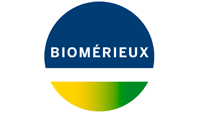bioMérieux and Antwerp University unveil the final results of the first Global Point Prevalence Survey1 of antibiotic use and resistance rates in hospitals
11 April, 2016Huge discrepancies in antibiotic use practices between countries, 2nd line antibiotics2 too frequently prescribed
Marcy l’Étoile (France) - Antwerp (Belgium) – April 11, 2016 – bioMérieux, a world leader in the field of in vitro diagnostics and the Laboratory of Medical Microbiology of the University of Antwerp are proud to present, on the occasion of the ECCMID3 congress, the final report of the Global Point Prevalence Survey (Global-PPS), the first global initiative providing a unique overview of antimicrobial consumption and resistance rates around the world. The study collected data from over 100,000 patients worldwide and reveals that more than one hospitalized person out of three receives an antimicrobial treatment. Moreover, this survey highlights the huge discrepancies in antibiotic use and resistance levels between countries and hospitals, and the need to optimize prescription rules.
The survey findings are presented during ECCMID in a form of an oral communication by Ann Versporten, Global-PPS Lead Coordinator, and 19 supporting posters from participating hospitals worldwide.
Unprecedented in scope, the Global-PPS monitored antimicrobial prescription and resistance rates worldwide. Supervised by a European Task Force of leading experts and piloted by the University of Antwerp (Belgium), the Global-PPS aims at raising global awareness of the problem of antimicrobial resistance and the inappropriate use of antimicrobials in hospitals throughout the world.
Committed to raising standards in healthcare practices and curbing antibiotic resistance, 335 hospital centers caring for adults, children and neonates in 53 countries volunteered to analyze their local antibiotic prescription practices with the objective of improving patient outcomes.
This Global Point Prevalence Survey demonstrated that antibiotic prescriptions vary significantly between continents and countries: 1 out of 2 hospitalized patients received antibiotics in Asia and Africa, while 1 out of 3 were administered these treatments in Europe. The survey clearly confirmed the strong correlation between antibiotic use and bacterial resistance rates and raises awareness on the urgent need and benefits of setting up antimicrobial stewardship programs in hospitals to curb resistance.
One of the key findings of the survey is the over-use of second-line antibiotics2, such as vancomycin in North America and meropenem in Asia and North America. In addition, ceftriaxone was found to be the most frequently used antibiotic worldwide.
The survey showed that diagnostic tests were only performed in 1 out of 3 cases to support the chosen antimicrobial prescription. Therefore, the survey stresses the significant medical value of in vitro diagnostics and clearly highlights that there is a need for more diagnostic tests and improved antimicrobial prescribing practices in all countries.
“The Global-PPS on antimicrobial consumption and resistance will allow for targeted quality improvements, the development of local prescribing guidelines, education and practice changes, and also for measuring the impact of these interventions,” said Pr Herman Goossens, director of the Laboratory of Medical Microbiology of the University Hospital Antwerp and the University of Antwerp, Belgium. “Furthermore, the participants will be able to implement sustainable improvement programs through repeated Point Prevalence Surveys which will be conducted in 2016 and beyond.”
“Rising antimicrobial resistance is recognized as a major public health challenge by many governments, world organizations and healthcare leaders. With a long-standing commitment and involvement in the diagnosis of infectious diseases, bioMérieux is very proud to be the sole supporter of the Global-PPS project, which significantly contributes to monitoring the worldwide prevalence of antibiotic consumption and resistance rates”, said Mark Miller, bioMérieux’s Chief Medical Officer.
Diagnostics play an essential role in guiding the effective and rational use of antibiotics, which is key to curb the emergence of antibiotic-resistant bacteria. As a world leader in microbiology and a pioneer in diagnostics, bioMérieux develops solutions which are instrumental in the diagnosis of infectious diseases and the management of antibioticresistant infections. Our unique global offer to fight antimicrobial resistance spans the full spectrum of clinical diagnostic solutions: microbial identification and susceptibility testing, infectious disease screening and active surveillance, outbreak management and monitoring, pathogen typing and differentiation of bacterial and viral infections.
The Global-PPS is a direct outcome of the World HAI/Resistance Forum 2013, a bioMérieux initiative gathering approximately 70 internationally-renowned experts in the field of infectious diseases and antimicrobial resistance.
About bioMérieux
Pioneering Diagnostics
A world leader in the field of in vitro diagnostics for 50 years, bioMérieux is present in more than 150 countries through 42 subsidiaries and a large network of distributors. In 2015, revenues reached €1,965 million with 90% of sales outside of France.
bioMérieux provides diagnostic solutions (reagents, instruments, software) which determine the source of disease and contamination to improve patient health and ensure consumer safety. Its products are used for diagnosing infectious diseases and providing high medical value results for cancer screening and monitoring and cardiovascular emergencies. They are also used for detecting microorganisms in agri-food, pharmaceutical and cosmetic products. bioMérieux is listed on the Euronext Paris stock market (Symbol: BIM – ISIN: FR0010096479). Corporate website: www.biomerieux.com
1 bioMérieux is the sole sponsor of the Global-PPS. The funder has no role in the study design, data selection, data analysis, data interpretation, or writing of the report. Data are strictly confidential and stored anonymously at the coordinating centre of the University of Antwerp.
2 Second-line antibiotics are “reserved” or “alternate antibiotics”, recommended by medical guidelines as an alternative treatment of an infection when standard 'first-line' antibiotics cannot be used for various reasons (for example: allergy, side effects, anticipated resistance).
3 European Congress of Clinical Microbiology and Infectious Diseases.
Contacts
Media Relations
bioMérieux
Aurore Sergeant
Tel: + 33 4 78 87 54 75
media@biomerieux.com
Image Sept
Laurence Heilbronn
Tel: + 33 1 53 70 74 64
lheilbronn@image7.fr
Claire Doligez
Tel: + 33 1 53 70 74 48
cdoligez@image7.fr
Download the Press Release:

